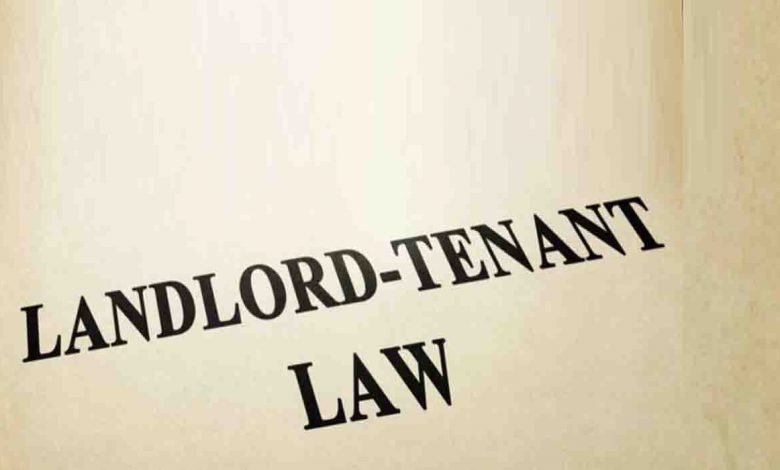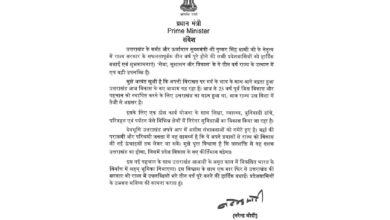Safe code of conduct for landlords, tenants

Thursday, 03 June 2021 | Rajesh Kumar | New Delhi
House owner can’t seek more than 2 months’ rent as security deposit
Landlords now cannot seek an amount more than two months’ rent as security deposit from tenants and security deposit to be paid by the tenant in advance will be a maximum of two months’ rent.
These provisions are part of the Model Tenancy Act (MTA) cleared by the Union Cabinet on Wednesday and sent for circulation to all States and UTs for adoption.
After enforcement of this Act, no person shall let or take on rent any premises except by an agreement in writing, and the tenant cannot make structural changes in the premises on their own without written consent of the landlord.
As per MTA provisions, the landlord will have to give a written notice, three months in advance before revising the rent and they must give the tenant a notice of 24 hours in advance (this could be sent using any electronic medium) to enter the premises. The Act will be applicable prospectively and will not affect existing tenancies.
For residential premises, tenants will have to submit a security deposit of maximum two months’ rent, while in case of commercial property, six months’ rent will have to be deposited. No landlord or property manager can withhold any essential supply to the premises occupied by the tenant. As per the Act, tenant will not be evicted during the continuance of tenancy agreement unless otherwise agreed to in writing by both the parties.
Tenants cannot sublet part of the whole of the rented building without the prior permission from the landlord. If they have permission to do so, tenants cannot charge an amount more than the rent they pay themselves.
Under the Model Tenancy Act, unless otherwise agreed in the tenancy agreement, the landlord will be responsible for activities like structural repairs except those necessitated by damage caused by the tenant, whitewashing of walls and painting of doors and windows, changing and plumbing pipes when necessary and internal and external electrical wiring and related maintenance when necessary.
On his part, tenant will be responsible for drain cleaning, switches and socket repairs, kitchen fixtures repairs, replacement of glass panels in windows, doors and maintenance of gardens and open spaces, among others.
“Where the landlord proposes to make any improvement in or construct any additional structure on any premises, which has been let out to a tenant and the tenant refuses to allow the landlord to make such improvement or construct such additional structure, the landlord may make an application in this behalf to the Rent Court,” the Act stated.
The Government estimates from the past show there are over 1.1 crore fit-for-renting properties that are lying vacant across urban India due to the lack of transparency and slow dispute resolution system. Property owners shy away from letting out their premises fearing squatting. This leads to limited supply, resulting in sky high rents. States and union territories can adopt the Model Tenancy Act by enacting fresh legislation or they can amend their existing rental laws suitably.
In a statement, the Government said it is expected to give a fillip to private participation in rental housing as a business model for addressing the huge housing shortage. “Model Tenancy Act provides a model for urban and rural properties and a template for residential & commercial properties. Will apply to future transactions and take people from informal to specific contract arrangement between landlord and tenant,” Hardeep Singh Puri, Union Minister for Housing and Urban Affairs said.
The MTA addresses factors like the need to have a formal rent agreement, how much security deposit should be paid, rate of rent increase, and grounds for eviction. As per Census 2011 around 110 lakh houses were lying vacant in urban areas.
The landlord could move the rent court in case the tenant does not pay rent for two months. If the tenant corrects the situation within one month of the matter reaching court, they will be allowed to stay, if this is their only default in the course of that year.
In case the premises are not fit for habitation, the tenant would be within his right to leave it after serving a 15-day notice period. In case of a dispute, landlords and tenants will have to approach the rent authority for settlement. In case they are not satisfied with the order of the authority, they can challenge it in the rent court/rent tribunal within 30 days from the date of the order.
Currently, rent agreements are registered at the sub-registrar’s office. In order to bring transparency, fix accountability and promote fairness in the rental housing segment, the policy proposes setting up of a rent authority. After the termination of the rent period, the landlord will be liable to get double the monthly rent for two months and four times the monthly rent thereafter, for the use and occupation by the tenant.






